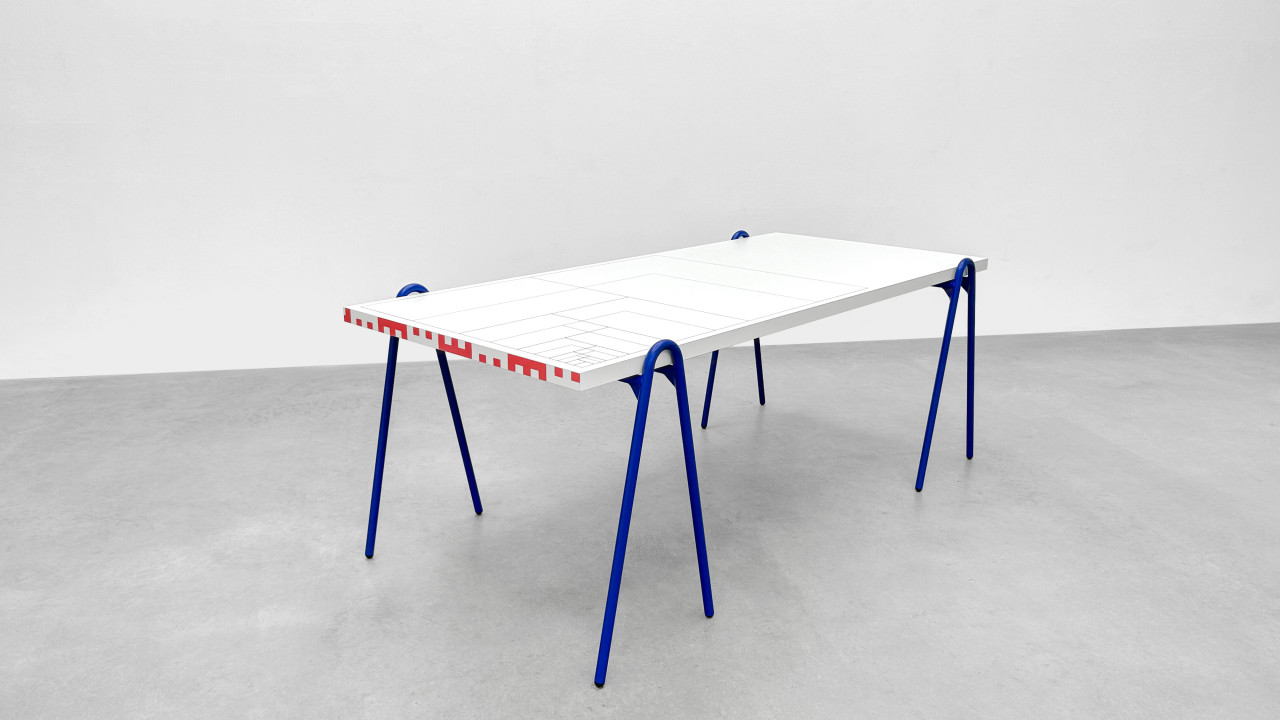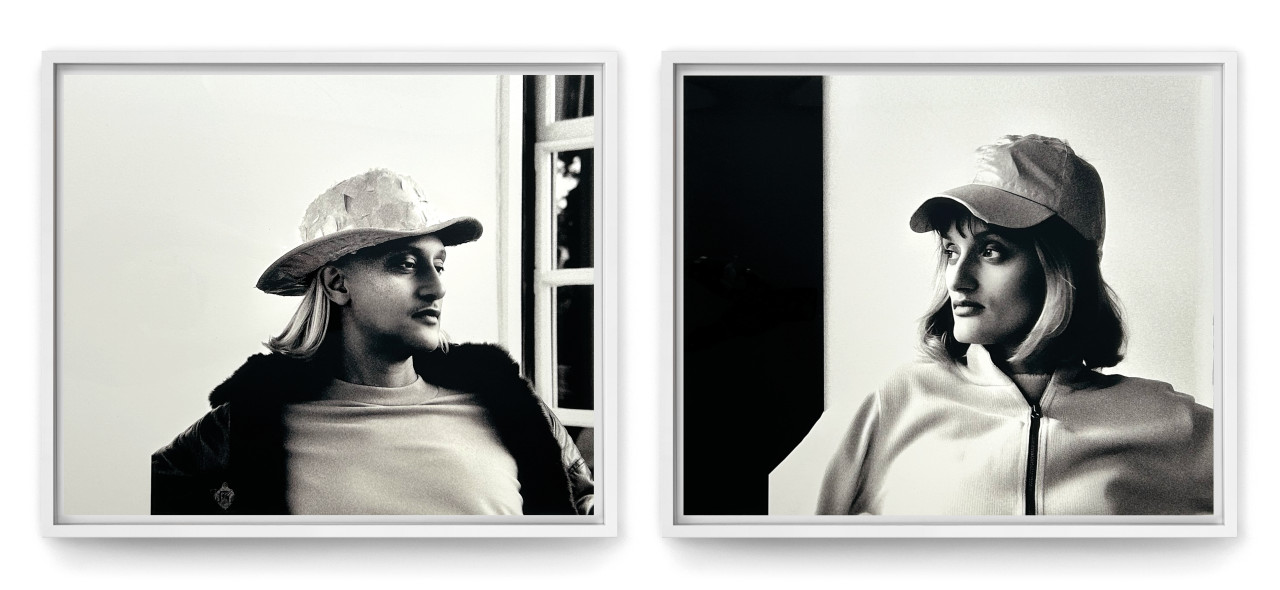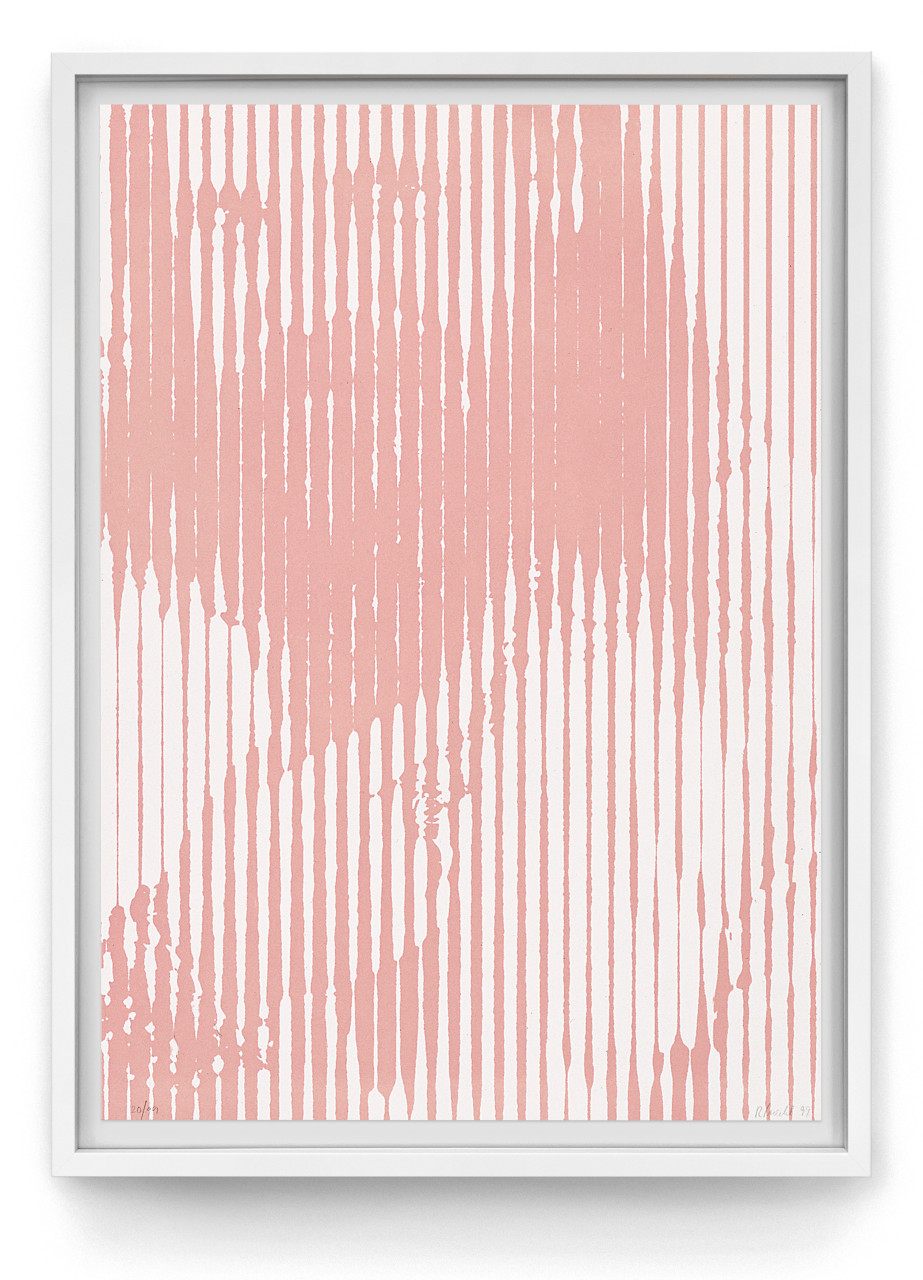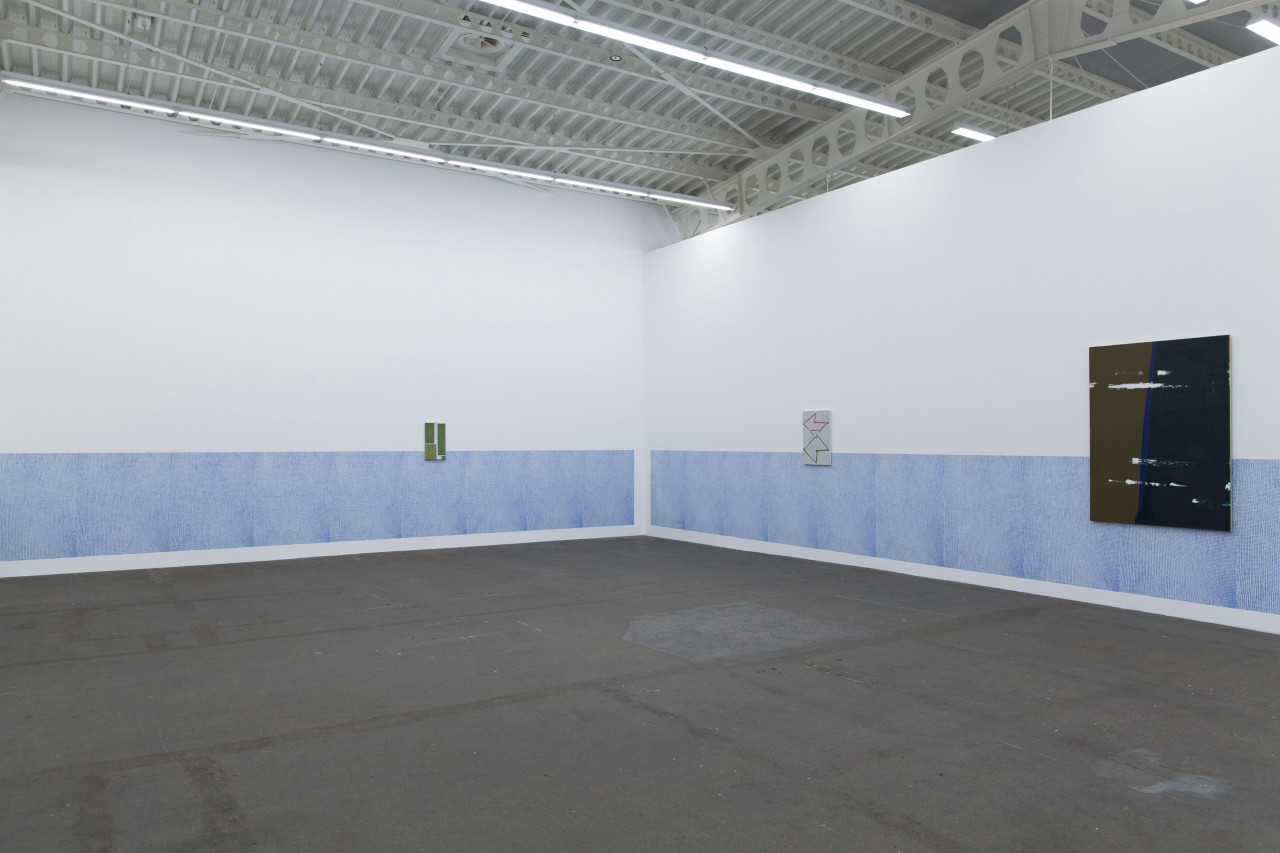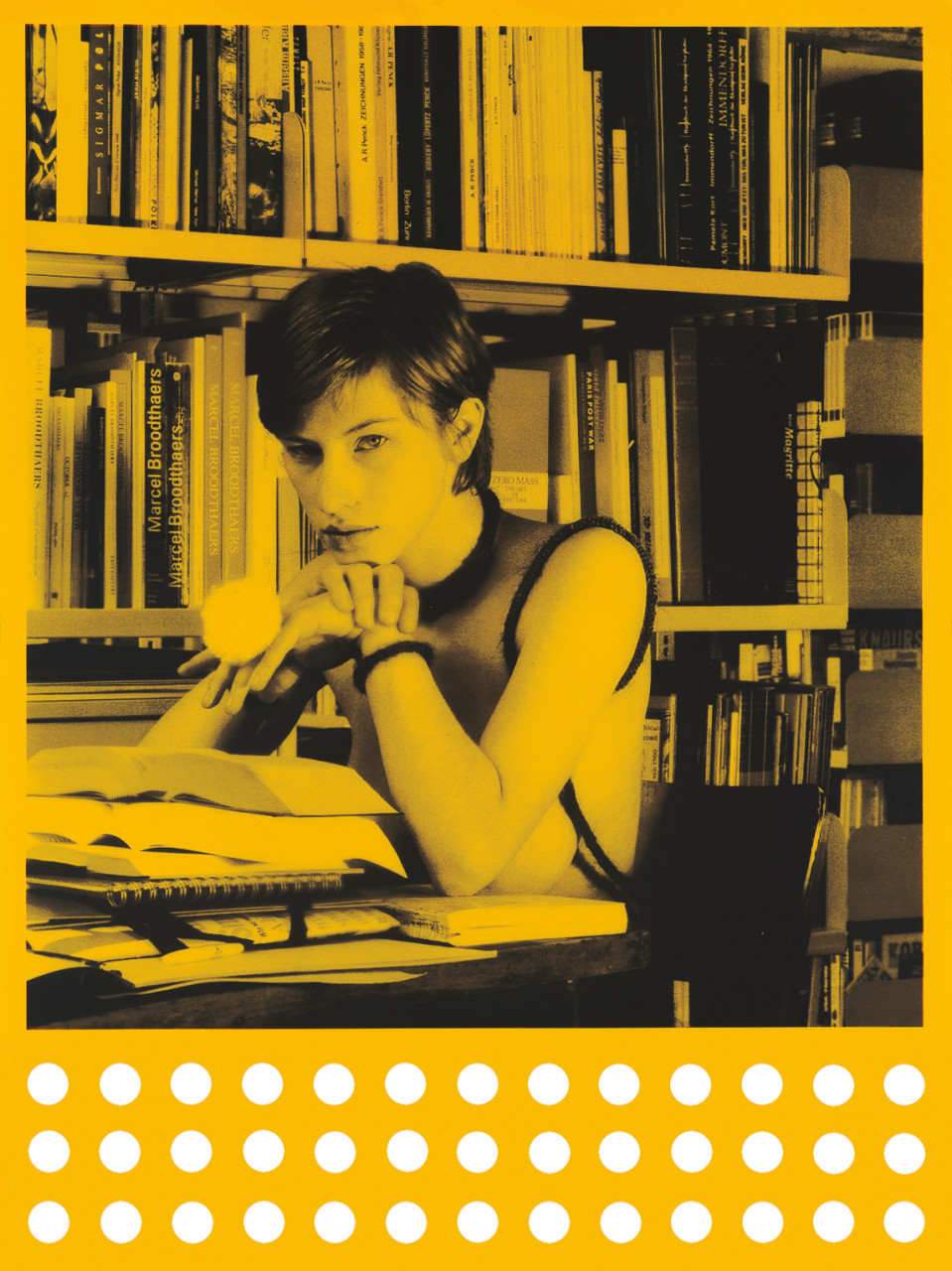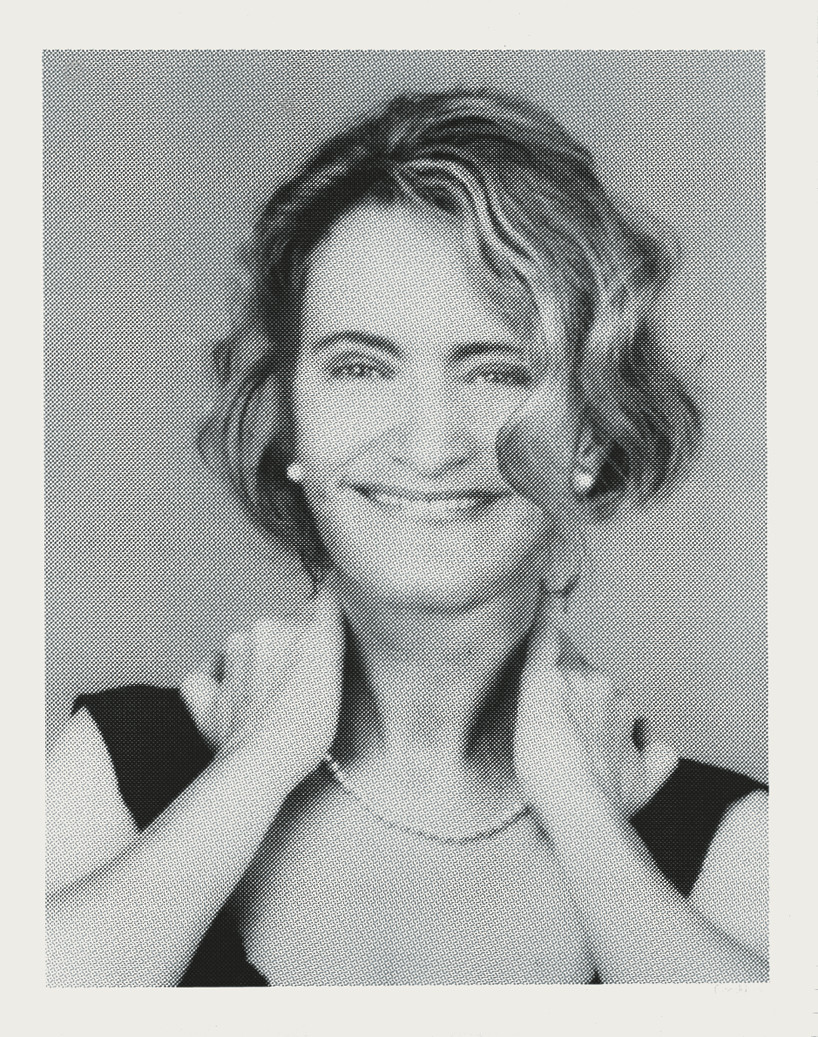Rosemarie Trockel
Rosemarie Trockel, born 1952 in Schwerte, Germany, lives and works in Cologne. Rosemarie Trockel has been known as an internationally significant conceptual artist since the 80s. Her works in various media – drawing, sculpture, installation, video and photography – address sociological issues with a feminist approach: Trockel takes stereotyped ideas about gender and renders them transparent and fragile. She works with subject matter that personally engages her, translating it into cool and realistic formal language and imagery. Whether working with knitting paintings or with hot plates, she demonstrates the cliché of the feminine by alluding to works traditionally associated with women.
Rosemarie Trockel Editions
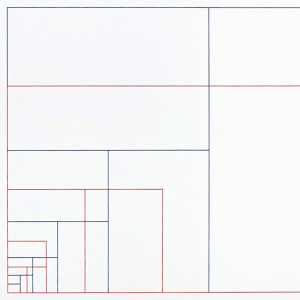
DINING Table
2021/2025

Mavericks
2024
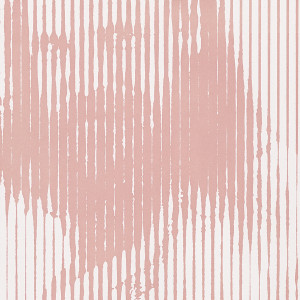
Artist 2000
1999
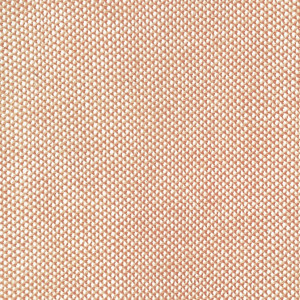
Falling Blue, Rising Red
1998
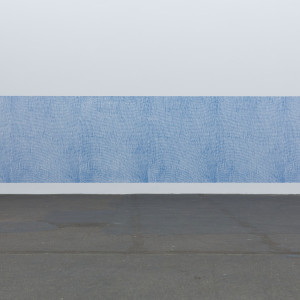
Prisoner of Yourself
1998

Bibliothek Babylon
1997

Alice im Wunderland (Alice in Wonderland)
1995
DINING Table
2021/2025
From Table Tableau
Laminate (HPL) on wooden board, 90 x 200 x 4 cm, to be used as a table top on blue trestles (model as illustrated) or hung on a wall in horizontal orientation. Edition of 30 + 3 A.P., with a signed and numbered artist’s certificate.
In DINING Table, Rosemarie Trockel transforms the table top into a surface for planning and designing. Metric and imperial units of measurement become the subject of the image, their precise grids translated into a visual composition that also invites practical use. The title’s first three letters, “DIN”, refer to the German Institute for Standardization (Deutsches Institut für Normung), linking the work’s functional and conceptual dimensions. With this, Trockel turns a system of order into an aesthetic field – a table that measures, plans, and reflects its own purpose.
EUR 8,000 (+ EUR 1,500 for the trestles)
Mavericks
2024
From FACES
Digital pigment print in two parts, on clear acetate foil, each 50 x 60 cm. Edition of 45 + 8 AP, each signed and numbered on verso.
In this edition, Rosemarie Trockel explores authorship and identity through the lens of artificial intelligence. Working from her own recent photographs, she used AI tools to generate two transformed portraits – figures that are both familiar and unfamiliar, intimate yet digitally altered. Furthermore, the somewhat androgynous appearance of the two figures, aptly titled Mavericks – i.e. someone who resists convention and operates independently from established norms – reflects the artist’s enduring critique of gender roles and societal norms.
EUR 2,000
Artist 2000
1999
Etching on rag paper, 80.5 x 57.1 cm (32 x 22 in). Edition of 99, signed and numbered.
This edition by Rosemarie Trockel marks a striking departure from her celebrated knitting pictures, highlighting the artist’s continual reinvention and conceptual depth. In Artist 2000, a pink-toned portrait emerges through vertical striations that both reveal and obscure the figure beneath. The subject stares out at the viewer with a seemingly direct gaze, yet remains elusive – dissolved into abstraction by the rhythmic interruption of lines. With this work, Trockel invites reflection on the act of looking and the instability of representation. The edition resists clear interpretation, underscoring her ongoing interest in perception, identity, and the boundaries of visibility.
This work is in the collection of MoMA, New York.
EUR 1,500
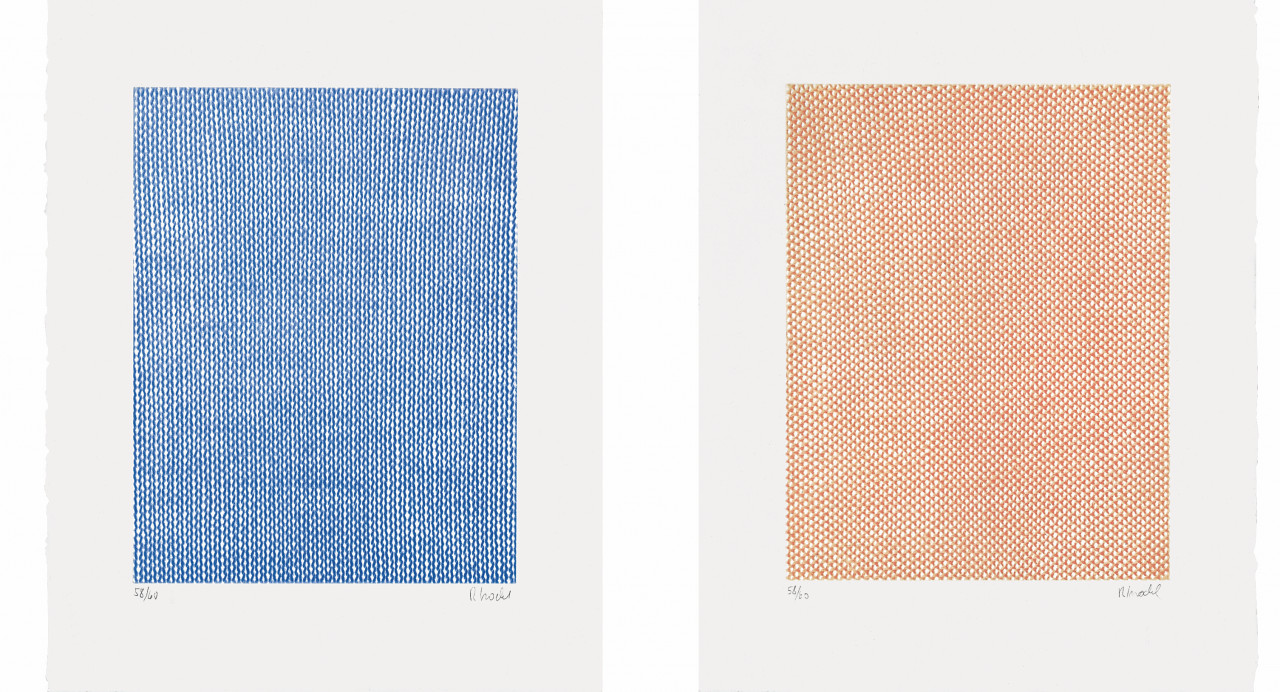
Falling Blue, Rising Red
1998
From Sequences
Two heliogravures on Rives rag paper. Each print 50 x 40 cm (19¾ x 15¾ in), each signed and numbered. Edition of 60.
With her Falling Blue, Rising Red edition, Rosemarie Trockel returns to the medium that first brought her international acclaim: the knitted image. Drawing on her signature practice of outsourcing the manual labor to knitting machines, Trockel transforms textile patterns into conceptual artworks. Though they resemble simple fabric swatches, her works are layered with cultural and political meaning. Trockel’s knitting works often reference domesticity and traditional gender roles, themes that are subtly evoked here through the use of color. By juxtaposing blue and red – evocative of the pink-blue coding in baby clothes – she reflects on the early social conditioning of gender identity. The precision of the machine-knit structure contrasts with the fluidity of interpretation, inviting the viewer to question the norms embedded in everyday materials. Through this edition, Trockel continues to challenge the sociopolitical positioning of women in art and society, and reclaims textile work as a site of critical inquiry.
Set EUR 4,000
Prisoner of Yourself
1998
From Wall Works
Silkscreen in blue, brown or black printed on one or more walls as a dado. Height 127 cm (50 in), length according to the wall. Limited to 12 installations, with a signed and numbered certificate.
For our Wall Works edition project, Rosemarie Trockel virtually installed her wall piece Prisoner of Yourself in two strikingly contrasting architectural contexts. The first was the salon of Villa Wittgenstein in Vienna, an austere and rigorously designed space conceived by Ludwig Wittgenstein in 1928 – an embodiment of precision, clarity, and restraint. The second setting was the modest interior of a cottage near Ahmedabad, built in 1918 by Mahatma Gandhi, where he lived with his wife until 1930. Here, the spinning wheel becomes a powerful symbol of Gandhi’s movement for Indian independence and the call for local, self-sufficient textile production, free from British colonial control. By placing Prisoner of Yourself in these two charged environments – one shaped by philosophical rigor, the other by political resistance – Trockel draws attention to how space, history, and ideology shape our perception of art. The work becomes a mediator between worlds, quietly interrogating the boundaries between domesticity, autonomy, and artistic expression.
EUR 20,000
Bibliothek Babylon
1997
Published for Documenta X
Screenprint on transparent mylar with punched holes, 120 x 90 cm (47¼ x 35½ in). Edition of 25 in red, 20 in yellow, and 15 in clear mylar.
The edition Bibliothek Babylon by Rosemarie Trockel combines image, material, and surface intervention to question systems of knowledge, gender, and representation. A woman – poised, self-possessed, and surrounded by towering bookshelves – meets the viewer's gaze from within a library, the so-called temple of rational order. Yet the work resists static meaning. The image, printed on transparent Mylar (in three color versions), becomes a semi-visible surface, open to layering and light, while the rows of punched holes across the bottom destabilize the print's integrity, referencing early computer punch cards, braille, or ventilation grids. The title evokes the mythic “Library of Babel” as well as Babylon – a site of both cultural excess and confusion – inviting reflections on the role of women in intellectual life and on the structures that control access to knowledge. With Bibliothek Babylon, Trockel merges conceptual rigor with tactile experimentation, crafting an edition that is as formally seductive as it is politically charged.
Alice im Wunderland (Alice in Wonderland)
1995
Silkscreen on rag paper, 101 x 80 cm (39¾ x 31½ in). Edition of 60, signed and numbered.
With this edition, Rosemarie Trockel offers a compelling portrait that plays with surface, identity, and perception. Rendered in a halftone aesthetic reminiscent of mass-media reproduction, the image shows a smiling woman in a seemingly conventional pose – elegant, composed, yet subtly performative. The title, referencing Lewis Carroll’s Alice’s Adventures in Wonderland, introduces a layer of irony and ambiguity, hinting at the slippage between appearance and reality, self-presentation and fantasy. Trockel often challenges traditional representations of femininity, and this work is no exception. The fine grain of the screenprint, with its illusion of photographic realism, underscores the constructed nature of the image, while the subject’s exaggerated expression and poised hands suggest both glamour and parody. As with much of Trockel’s work, Alice im Wunderland resists easy interpretation: it is at once seductive and unsettling, humorous and critical, reminding us that the “wonderland” of gender, identity, and image is never neutral ground.
This work is held in the collection of the Harvard Art Museums.
€ 1,500 € 900 / $1,000 shipping costs included
